Scene of destruction in the Gaza Strip following Israeli strikes, October 2023 © Al Araby
“Any crime which results in profit can be used to finance terrorism,” says Interpol on its Website. It goes on to list possible sources of funding that may be available to terrorists: low-level fraud, kidnapping for ransom, the misuse of funds from non-profit organisations, the illicit trade in commodities such as oil, charcoal, diamonds, gold, and narcotics. Have Hamas demanded money for the Israelis it took hostage on the 7th October? It’s certainly possible; they’re not “nice” people, nor are they considerate of human life or family values. Terrorists never are. At the end of the day it’s all about power: whoever has the biggest gun or the bomb with the greatest blast radius wins. Interpol believes that interrupting the flow of cash to those bodies engaged in terrorism may hamper their activities if it can be achieved, although it won’t end them. It’s at this point that the European Union becomes involved. Aid to the supposedly more impoverished parts of the world from the richer and more prosperous countries is a long-established norm. I’ve never been sure how much good this largesse does for those who have little or nothing, assuming any of it reaches them, but it generally makes the inhabitants of the rich donor countries feel better about themselves and allows them to revel in their own kindness and generosity. Oscar Wilde made the interesting observation that “a beggar hates his benefactor as much as he hates himself for begging”, so the “generous” giver should not expect much in the way of gratitude.
It was in 2022 that the EU announced €25-million in humanitarian aid to Palestinians in the West Bank, East Jerusalem, and Gaza. That may sound like quite a lot but the EU’s overall budget for 2023 was €1.211-trillion (€1,211,000,000,000). In that context, the €25-million (a mere €25,000,000) begins to look like pocket money. The plain fact is that more than two million Palestinian women, children, and men in the Occupied Territories and the Gaza Strip are in desperate need of humanitarian aid in some form. Not that this excuses or pardons or even explains the murderous attack on Israelis by Hamas in early October, in which many people of all ages were murdered, hostages were taken, and babes-in-arms had their throats cut or were – in some reported cases – beheaded by the attackers. Nothing explains that, but a great many Palestinians in Gaza have suffered over the years from what appears to have been Israeli indifference to their plight. I did not witness the Hamas attack, so cannot write from personal experience, and reports from both sides tend to be somewhat biased. As is so often the case, it seems, the hatred has a basis in differences of religion or the way of observing it. All too often, it seems, religious people seem to think they can best serve their god by slaughtering everyone with alternative beliefs, however slight the differences. At present, Hamas is looking to other Islamic countries for support against their old enemy, Israel, but so far not much has been forthcoming on a country-by-country basis; at least, not at the time of writing.

The EU initially voted in favour of taking economic action against Hamas and its friends, with EU Enlargement Commissioner Olivér Várhelyi announcing that the European Commission is putting its full development portfolio for the region — €691-million in total — under review, with all payments immediately suspended. No more money for those suffering in the Gaza strip, at least not for the moment. It didn’t last, however, and later that decision was reversed, presumably because those suffering the effects most seriously were not the Islamic fighters of Hamas but ordinary Palestinian women and children. That’s the trouble with sanctions: they tend to be indiscriminate. Várhelyi’s announcement did not find favour with Spain, Portugal, Luxembourg. or Ireland, while other member states also sounded alarmed. There was some confusion over Várhelyi’s actual words anyway, but the European Commission announced that humanitarian aid (if not development aid) would continue. Neither the Commission, nor Germany nor Austria, differentiated between Gaza, which is ruled by Hamas, and the much larger West Bank, under the control of the Palestinian authority, headed by President Mahmoud Abbas and his Fatah movement. It is a rival to Hamas and generally less violent. Germany has – especially lately – emphasized its historic duty towards Israel in view of its responsibility for the Holocaust.
It’s easy to blame acts of terrorism, including the Hamas invasion of Israel on 7th October, on the extremely poor rebelling against their condition. In fact, terrorism usually has little or nothing to do with people’s incomes or living conditions. The former United Nations Secretary General Kofi Annan summed it up well: “The fundamentalist seeks to bring down a great deal more than buildings,” he said, “Such people are against, to offer just a brief list, freedom of speech, a multi-party political system, universal adult suffrage, accountable government, Jews, homosexuals, women’s rights, pluralism, secularism, short skirts, dancing, beardlessness, evolution theory, sex.” The hatred towards Jews – all Jews – is built in, although the claim that the Jews “stole” Islamic land is historically questionable, anyway. After all, the region has been called “the Holy Land” for some 3,000 years, giving rise to Judaism, out if which came Christianity and later Islam. All preached love, but very few seem to have observed it, constantly fighting among themselves.
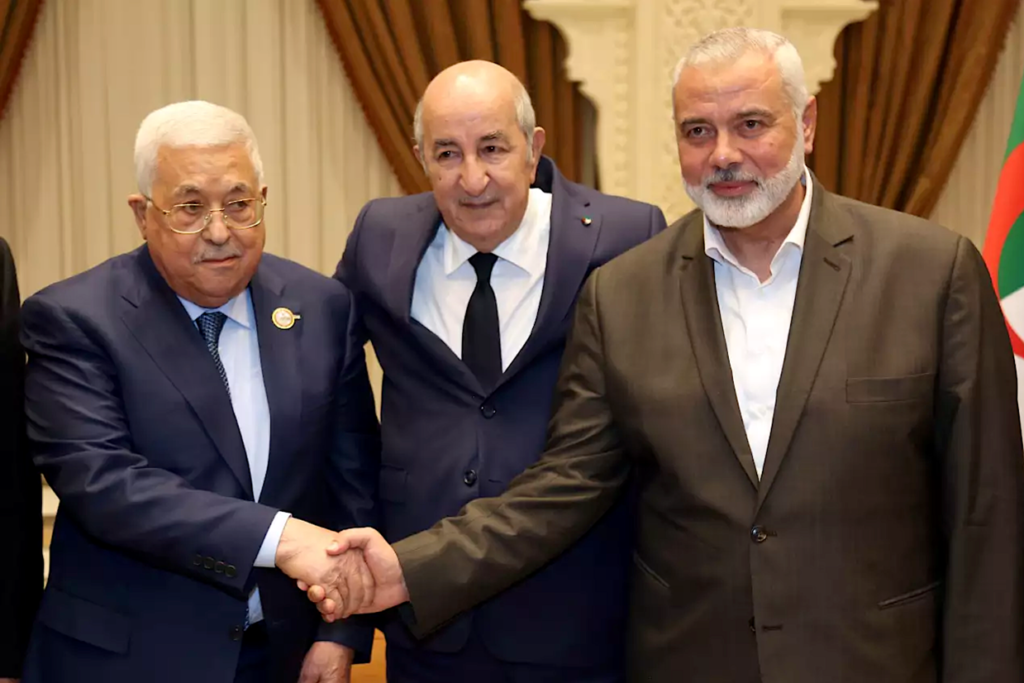
| OILING THE WHEELS OF TERROR
Hamas does not enjoy universal support among Muslims. Those who made a fortune didn’t think Gaza was a safe place to keep it so invested it in Egypt, using partnerships with Muslim Brotherhood officials. They weren’t all devoted to the fight for freedom or an Islamic state; the urge to make money was stronger. Hamas founder Ayman Taha paid $700,000 (€655,000) for a luxury villa in Gaza but was later charged with being an agent for the Egyptian government. His murder (execution?) remains a mystery. Who did it and why? The Palestinian daily Al-Quds claims that he was executed by a Hamas firing squad for allegedly “maintaining contact with intelligence services in Arab countries”, and specifically Egypt. Hamas claimed he’d died in an Israeli airstrike. He had been blocked by Egypt from entering Gaza because he was said to have been carrying $11-million (€10.31-million). Where did he get it? If it was embezzlement, it was on a massive scale and would have been hard to carry, however big his pockets. The money was instead deposited in a bank in the Egyptian town of El Arish. Taha was arrested and later investigated by Hamas on charges of suspected corruption, and it was said that he had bought villas in Gaza with embezzled money, according to the Yemeni newspaper Al-Ayyam. He was subsequently held in a Gaza Strip detention facility for months. Hamas had stressed that the arrest was over “financial issues,” adding that the detention was purely an internal matter, and not related to security issues.

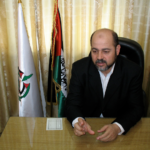
Egypt is not happy with Hamas either, especially since the smuggling of petrol through the border town of Rafah. It was sold in Gaza at bargain basement prices while Egyptians were paying eight times as much for fuel. Another person who became rich while others suffered was Khaled Mashal, who was reported in Jordan to control $2.6-billion (€2.43-billion), most of it safe inside Qatari and Egyptian banks. Some reports have alleged that a proportion of that money was siphoned off, too, subsequently “disappearing”. It might help to explain Hamas’s alleged annual turnover of $1-billion (€0.94-billion). Others in the Hamas hierarchies do quite well, too: Abu Marzuk: $3-billion; Mahmoud Abbas: $1.5-billion; Ismail Haniyen: $4-billion, and there are others. Even so, most Hamas fighters are still awaiting their salaries from Hamas, which claims to be “hard-up”, and ordinary citizens remain penniless.
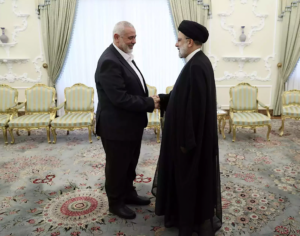
There are also a number of projects in hand with links to Mashal, who claimed that the $12-million (€11.23-million) stored in his safe in Damascus had been “lost”. I wonder if he has searched down the back of the sofa yet…? It’s a lot to mislay. Some sources claim that a project by Qatar’s Fadil real estate company is also linked to Mashal, while the Gaza Strip is the third poorest place in the Arab region, according to the World Bank. The poverty rate there stands at 38%. Most of the countries poorer than Gaza are in Africa. United Nations law is strict on the funding of terrorism. It is illegal for “any person to commit an offence within the meaning of this Convention if that person by any means, directly or indirectly, unlawfully and wilfully, provides or collects funds with the intention that they should be used or in the knowledge that they are to be used, in full or in part, in order to carry out an act which constitutes an offence within the scope of and as defined in one of the treaties listed in the annex; or any other act intended to cause death or serious bodily injury to a civilian, or to any other person not taking an active part in the hostilities in a situation of armed conflict, when the purpose of such act, by its nature or context, is to intimidate a population, or to compel a government or an international organization to do or to abstain from doing any act.” I think that covers all the bases, but terrorists don’t obey the law, of course.
| NO END IN SIGHT
This is a conflict that has no possible end, other than the total destruction of one side by the other, which is clearly not going to happen (at least, most sensible people fervently hope not). Their friends wouldn’t allow it, even if some country was stupid enough to try. Israel and the Palestinian Authority both signed up to the 1993 Oslo Accords, under which both sides would enjoy self-determination with the ultimate goal of a two-state solution bringing peace, but that never really happened. The hatred remains red in tooth and claw, to use an old expression, and such is the vitriol in all the utterances made by both sides (Gaza and Israel) that it’s really not feasible to speak of “peace”. There isn’t any, and both sides blame the other, like badly-behaved kids in a school playground.
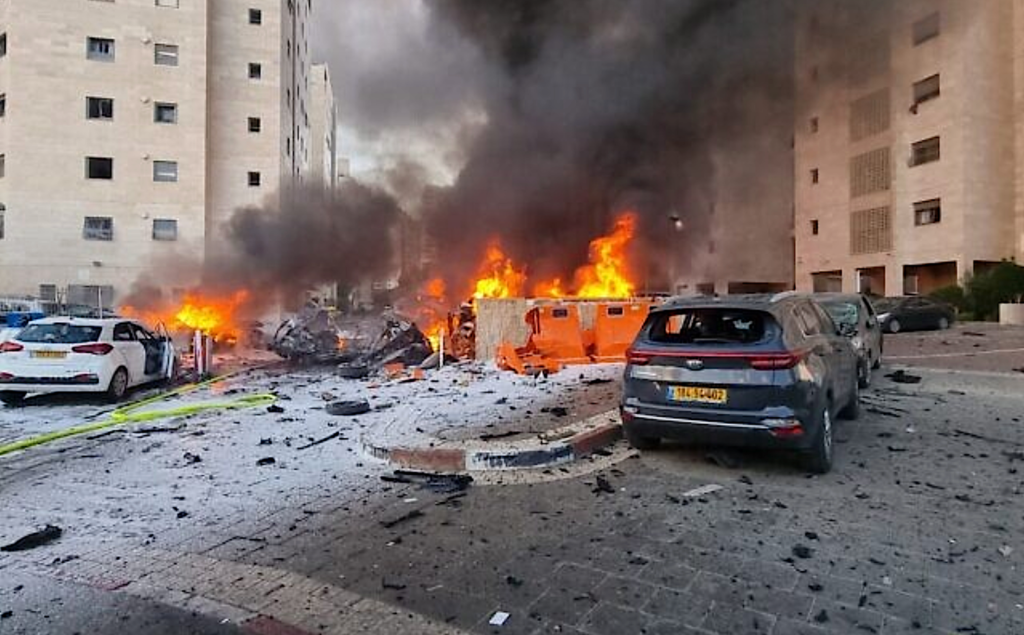
Israel has been in existence for three-quarters of a century, but the Hamas attack on the 7th October was the bloodiest day of all. The Koran mainly encourages peace amongst its followers, but not always. Take as an example Chapter XVI, “The Bee”, where it is written: “And the day We shall raise up from every nation a witness, then to the unbelievers no leave shall be given, nor shall they be suffered to make amends. And when the evildoers behold the chastisement, it shall not be lightened for them, and no respite shall be given them.” It’s fairly remorseless stuff, to be honest, about how those who don’t believe in Islam are to be punished in God’s name for doubting, although the same chapter blames God for starting it all, rather surprisingly. “If God had willed,” continues line 95, “He would have made you one nation; but He leads astray whom He will, and guides whom He will, and you will surely be questioned about the things you wrought.” Be wary, then: you could face prosecution before a fairly uncompromising judge, it seems, merely for falling into a verbal trap set by God himself, it seems. None of that sits comfortably with what is written in my various books about the Abrahamic faiths.
Having said all that, it’s clear that Israel’s friends around the world (most importantly, perhaps, the United States) will not sit idly by while other countries or powers are supplying Israel’s enemies with weapons of mass destruction to be used against her. That’s why the US Department of Treasury’s Office of Foreign Assets Control announced in October its intention to sanction eleven individuals, eight organisations or entities and a ship based in Iran, along with Hong Kong, the People’s Republic of China, and also Venezuela, which have expressed support for Hamas and a willingness to provide vital supplies.
They are all accused of helping to enable Iran’s (allegedly) destabilizing programmes for the development and production of ballistic missiles and unmanned aerial vehicles (UAVs). The people named in the US sanction plans have, it’s claimed, materially supported Iran’s Islamic Revolutionary Guard Corps (IRGC), Ministry of Defence and Armed Forces Logistics (MODAFL) or their subordinates in the production and proliferation of missiles and UAVs. At the time of writing, the fighting that began with the attack by Hamas had already claimed more than 4,200 lives.
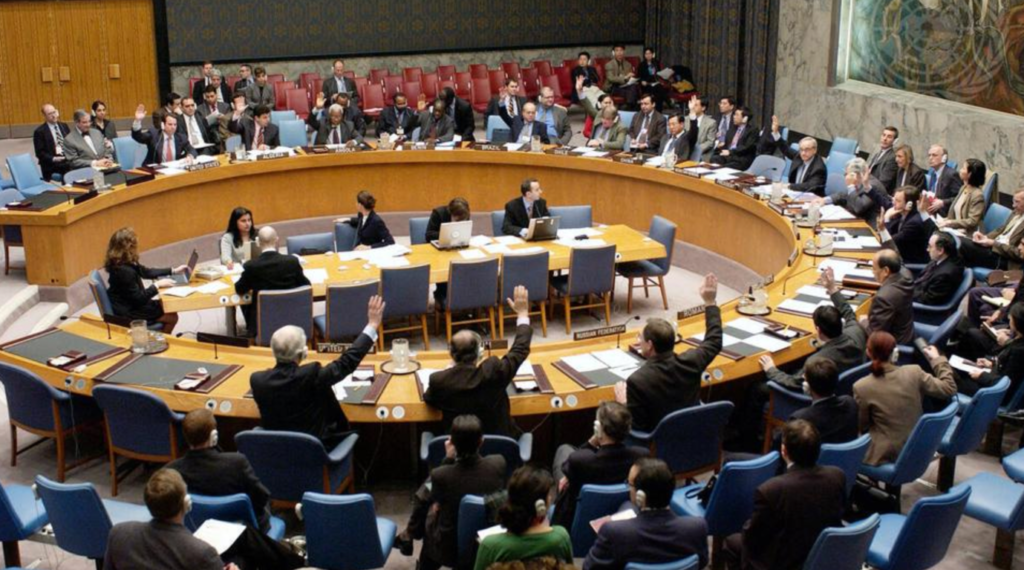
The EU has been similarly thorough in cutting off ties with Israel’s most dangerous enemies, freezing funds and cutting off economic resources, while maintaining the organisation on its list of persons, groups and entities involved in acts of terrorism. The EU’s action comes as part of the reaction to UN Security Council Resolution 1373, originally adopted back in 2001. It hasn’t all gone the way the many enemies of Hamas would like. According to a 2014 ruling by the EU’s second highest court, Hamas should not be included on the European Union’s list of terrorist organisations. The General Court of the European Union concluded that the EU had failed to provide adequate evidence to support its designation of the Palestinian movement, which controls the Gaza Strip, as a terrorist organisation. It said that the EU had relied too heavily on media and internet reports, as governments often do. It’s called “populism”. Of course, recent horrific events ensure that the attitude towards Hamas isn’t purely based on media reports and have hardened some hearts against the organisation.
| MONEY, MURDER AND PRAYERS
So, what is Hamas? It is a militant Sunni Islamist movement and one of the two major political parties in the Palestinian territories. It governs more than two million Palestinians in the Gaza Strip, but it is best known for its armed resistance to Israel. In October 2023, Hamas launched a massive surprise attack on southern Israel, killing hundreds of civilians and soldiers and taking dozens more as hostages. Unsurprisingly, Israel declared war on the group in response and it has indicated that its military is planning a long campaign to defeat it completely. The group’s name, Hamas, is an acronym for Harakat al-Muqawama al-Islamiya, which means “Islamic Resistance Movement”. A large number of countries, mainly with links to the West, have designated Hamas as a terrorist organisation, although some reserve that designation for its military wing only. Ironically, one of the principal backers of Hamas is Iran, which is mainly Shi’a Muslim, while the Palestinians follow the Sunni version of the faith. The split between the two branches is not so much doctrinal as political: should you choose the faith’s leaders (the Sunni do) by electing them, or, like the Shi’a, insist on being led by one of Mohammad’s descendants?
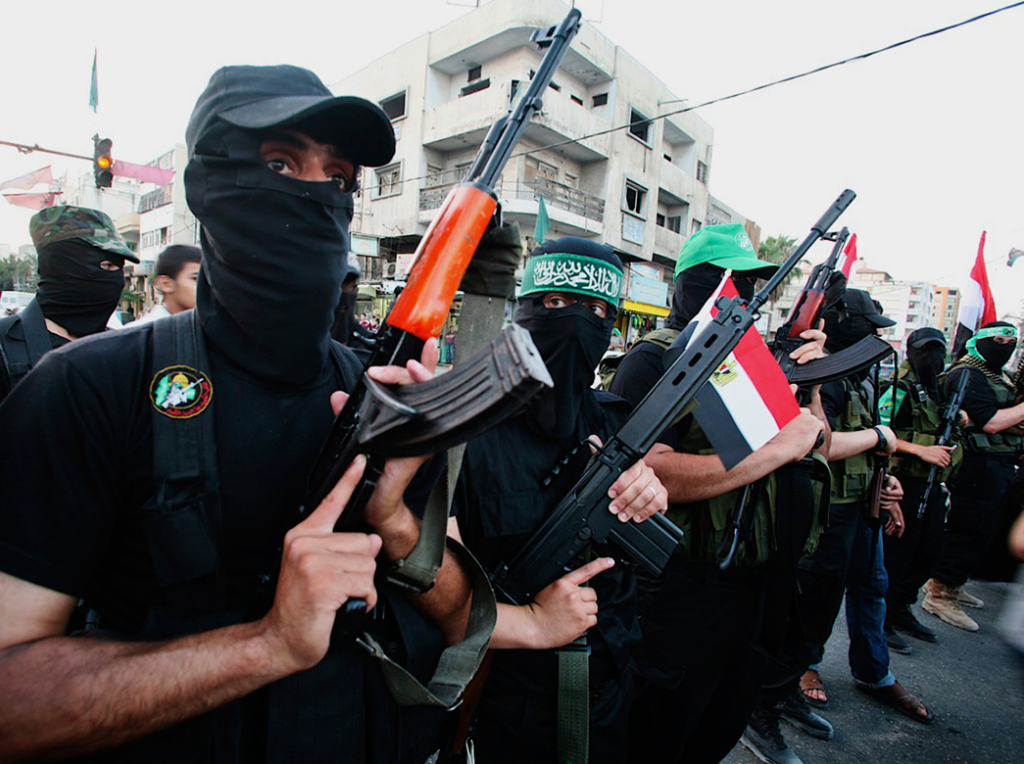
Dozens of countries have declared that Hamas is a terrorist organization. It receives material and financial support from Iran and it’s been reported that some of its top leaders are living – well hidden, of course – in Turkey. Hamas’s rival party, Fatah, dominates the Palestine Liberation Organisation (PLO) and rules in the West Bank. Fatah, unlike Hamas, has renounced violence. Hamas, on the other hand, does not recognise Israel’s right to exist and is pledged to destroy it, with the intention of replacing it with a wholly Islamic Palestinian state, “from the river to the sea”, as they shout, meaning everything from the River Jordan to the Mediterranean Sea, presumably with all the Israelis there killed. That’s obviously not an idea that finds favour in the United States and much of the West. Meanwhile, Lebanon’s Hezbollah movement would seem to be entering the fray, even though its leadership have warned that they’re not fully ready to take on Israel, despite having traded shellfire across their border since the attack by Hamas. Hezbollah is more properly written as Ḥizb Allāh, which means “Party of God”, although you might think that there’s very little that could be described as truly “god-like” in any camp in the Holy Land. Israeli forces have been struggling to reach the gates of Gaza City’s main hospital as part of their bid to take control of the northern part of the Gaza Strip. Patients there are dying for lack of fuel, but an offer from Israel to provide emergency supplies was rejected by the militants. A few more deaths, I suppose, is added propaganda for Hamas, who don’t really seem to care much for human life.
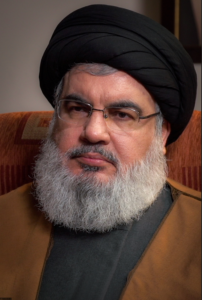
Following the 1979 Islamic revolution in Iran, with its Shi’a majority, and after the Israeli invasion of Lebanon in 1982, a group of Lebanese Shi’a Islam clerics formed Hezbollah with the intention of driving Israel out of Lebanon and establishing an Islamic republic in its place. Here we return to the so-called Six-Day War in 1967, when Israeli forces defeated Egypt and Jordan before turning their attention to Syria.
With covering fire from the Israeli air force, Israel’s military engineers constructed access roads up the Golan Heights, using them for an assault by infantry and armoured vehicles.
Almost thirty Jewish settlements were established on the Heights, which Israel annexed in 1981. Talks continued on and off for years about who was in charge, with Turkey helping to restart them in 2008.
Israel is still occupying the Golan Heights, which Hamas say they must return to Islamic control. The phrase “spoils of war” springs to mind, although a little generosity of spirit would be welcome from both sides.
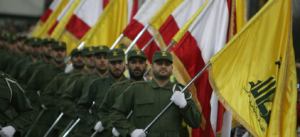
Meanwhile, accusations fly back and forth over the bombing of a Gaza hospital, which killed many people. Israel still denies its involvement, placing the blame on Hamas and an accidentally misfired rocket (an accident in other words; missiles do sometimes misfire), while Hamas is still accusing Israel of deliberately targeting the facility. Meanwhile, yet again money raises its ugly head as a threat: fears are growing among Israelis and some Palestinians that, according to a controversial law aimed at rewarding Palestinians who murder Israelis in “nationalistic attacks”, the Palestinian Authority may find itself obliged to pay out almost $3-million (€2.84-million) per month in compensation to the families of the many, many Hamas fighters who were involved in the attacks on Israel on the 7th October.
Women have always been important in any conflict, of course, and the European Parliament has announced that it will award the 2023 Sakharov Prize for Freedom of Thought to Jina Mahsa Amini and the Women, Life, Freedom Movement in Iran. The founder member was murdered in Iran in September 2022. She had been arrested by police in Tehran for allegedly ignoring Iran’s strict laws on veiling and died in a Tehran hospital three days later, having suffered appalling physical abuse while in custody, presumably at the hands of people who had never read the Qur’an. MEPs agreed that further additional sanctions should be imposed on Iran and on its officials. The death has led to protests in Iran itself, but it seems unlikely that they will change anything there.
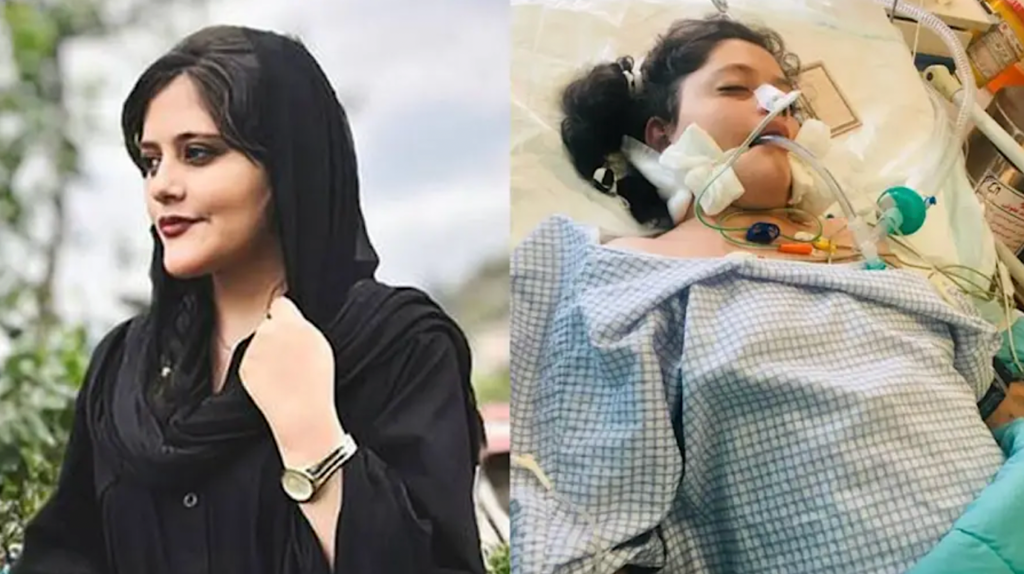
Meanwhile the people of Gaza are suffering. On 9 October 2023, Israel imposed a “total blockade” of the Gaza Strip, blocking the entry of food, water, medicine, fuel, and electricity. Israel has warned Hamas that the blockade will not be lifted until the many Israeli hostages that were seized by the militants are released unharmed, although one elderly Israeli woman who was released has spoken of appalling mistreatment at the hands of her captors. As a result of the blockade, the only power plant in the Gaza Strip ran out of fuel on 11 October, which has resulted in electricity in Gaza being cut off. Subsequently, desalination plants that have been providing water have been shut down, completely stopping running water. This clearly affects adults and children alike in a way that threatens lives. Volker Türk, the United Nations High Commissioner for Human Rights, said that Israel’s siege of the Gaza Strip violates international law because of this, endangering the lives of civilians by depriving them of goods that are essential for their survival.
| THE BLAME GAME CONTINUES
According to Al Jazeera, the head of a hospital in the Gaza Strip has issued an emotional appeal calling for an end to Israel’s bombardment following an air raid that doctors said killed several infants. “Look at these children. Who is killing these children,” asked Yousef al-Akkad, director of European Gaza Hospital in the southern city of Khan Younis, standing behind the bandaged and bloodied bodies of the toddlers. Doubt remains, however, about exactly who was responsible for that attack. More recently, two large hospitals in Gaza City have had their electricity cut off as fighting between the militants and the Israeli Defence Forces intensified. Al Jazeera has also reported that Hezbollah is much better armed and prepared for war than in its last confrontation with Israel. Both sides have traded shells, and their last confrontation, in 2006, saw 1,100 Lebanese nationals and 165 Israelis killed. The war also destroyed or severely damaged some 30,000 homes, 109 bridges and 78 medical facilities, according to the International Committee for the Red Cross.
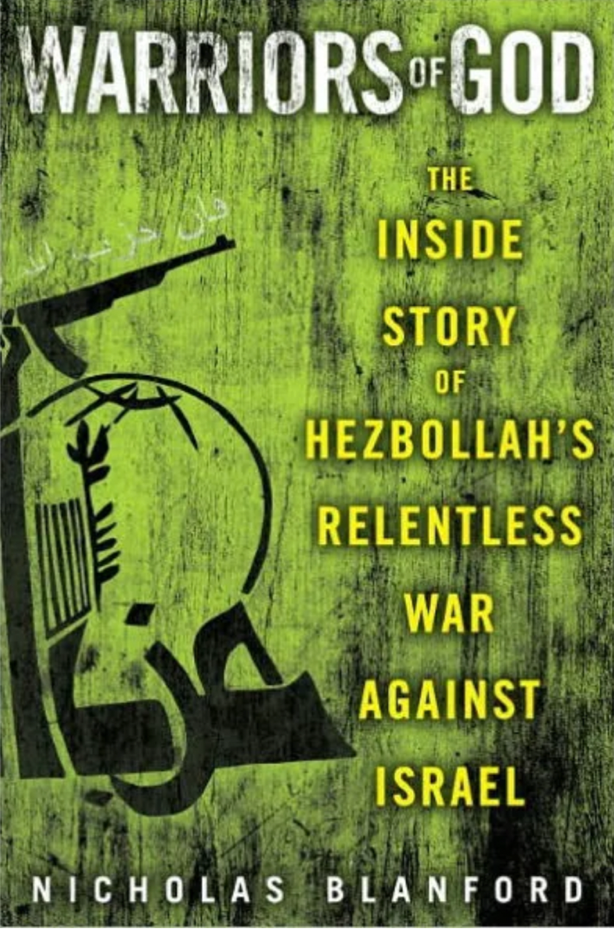
An expert on Hezbollah’s military capabilities at the Atlantic Council, Nicholas Blanford, says the group can now field between 3,000 and 5,000 fighters, together with short range missiles with which to hit Israel.
There is also, of course, the issue of hostage taking, in this case an estimated 100 or more Israeli civilians, mostly women, children and the elderly, who were herded into the Gaza Strip by Hamas. There is a United Nations international convention against the taking of hostages. The Convention determines very firmly that taking hostages, regardless of the circumstances, is against international law. To quote from the UN treaty document: “Any person who seizes or detains or threatens to kill, to injure or to continue to detain another person (hererinafter referred to as the ‘hostage’) in order to compel a third party, namely a state, an international intergovernmental organisation, a natural or juridical person, or a group of persons, to do or abstain from doing any act as an explicit or implicit condition for the release of the hostage commits the offence of taking hostages (“hostage taking”) within the meaning of the Convention.” That’s fairly explicit, I reckon, and it means that Hamas has undoubtedly broken international law. Bringing anyone in front of a judge (and what judge could it be?) is quite another matter and much more difficult. The UN is, however, adamant: “Considering that the taking of hostages is an offence of grave concern to the International Community and that, in accordance with the provisions of this Convention, any person committing an act of hostage taking shall either be prosecuted or extradited”. Given what’s been going on there, it’s no surprise that the EU was applying sanctions, which is no longer the case. Unfortunately, they were likely to affect the innocent most of all, which is why they were cancelled.
It is also being claimed by Susannah Johnston, a reporter for Focus on Western Islamism (FWI), that in the United States (and presumably elsewhere) millions of federal taxpayers’ dollars have been going to organisations controlled by militant Islamists, with the sums involved increasing year by year. Johnston alleges that California, for instance, has given thousands of dollars to the Council on American-Islamic Relations (CAIR) which, she writes, was founded in 1994 by Hamas supporters. She wrote that the national executive director of CAIR, Nihad Awad, tweeted his support for Hamas immediately following its attack on southern Israel.
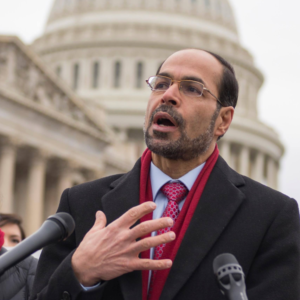
But, of course, he was not alone in doing so. Egypt, meanwhile, has opened the Rafah border crossing, allowing humanitarian aid to reach Palestinians in Gaza. At the time of writing, Israeli strikes on Gaza have killed at least 3,785 Palestinians, with a further 12,493 being wounded. Palestinian sources are also still insisting that the strike on the Gaza hospital that killed 500 people came from Israeli forces, although Israel denies it. Palestine’s UN mission has accused the Israelis of “disinformation” and propaganda about the incident. As with all wars, there is such confusion that it’s impossible to know who, if anyone, is telling the truth.
The European Parliament adopted a resolution calling for a “humanitarian pause” in shelling and bombing in order to let humanitarian aid reach Gaza. A similar move at the United Nations Security Council was vetoed by the United States, but the EU call for a pause, rather than a full ceasefire, has been condemned as being “too timid”. Euronews reported one response from Vittorio Infante, Oxfam EU conflict expert: “While any window to bring in aid to Gaza safely should be seized at this catastrophic stage, this is not the real answer. We need a full ceasefire by all parties, and an end to the siege of Gaza. This is the only way to get enough humanitarian aid and life-saving assistance to civilians there.” Causing the deaths of so many innocent civilians, especially women and children, can never be the solution to any conflict, however bitter and long-lasting, but that won’t stop the fanatical from trying.

